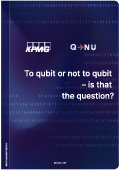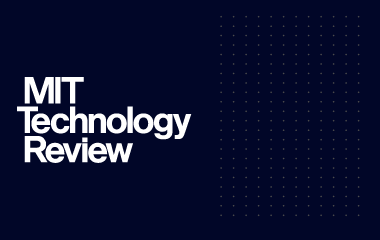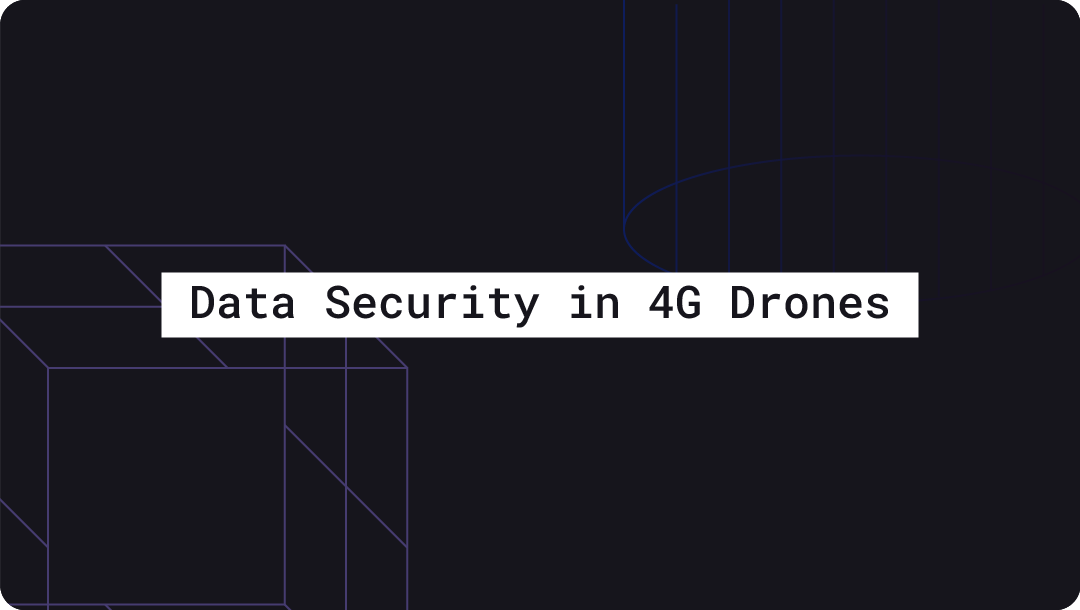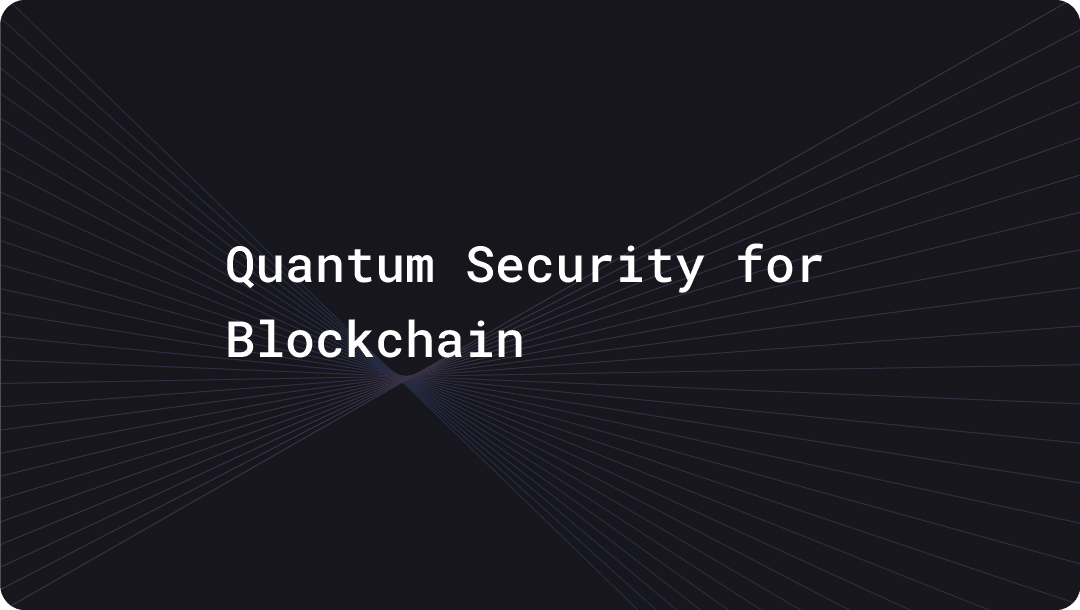Our products Armos(QKD) and Tropos(QRNG) are now on GeM's portal
Proactively securing data for the Post Quantum Era
Now is the time to strengthen your critical infrastructure with quantum security!
85%
attacks are now utilizing encryption for their channels.
53%
of companies left 1,000+ sensitive files unencrypted.
56%
of Ponemon Institute study finds encryption key management painful.

To qubit or not to qubit - is that the question?
In this report, we focus mainly on why, what, how of quantum cryptography and the applications in today’s digital world.
THREAT
Quantum Computing Threat to Infrastructure and Information Security
Quantum computers pose a threat to classical encryption methods and infrastructure security, entropy starvation allows for stealthy eavesdropping, and publicly exposed channels increase risk for critical information exchanges. Proper measures must be taken to protect against these security risks.
Quantum Computing Threatens Classical Infrastructure Security
Quantum computers pose a threat to traditional infrastructure because they can break classical encryption methods.
Entropy Starvation Allows for Stealthy Eavesdropping
When entropy is limited, it becomes easier for attackers to secretly intercept and gather information without detection.
Publicly Exposed Channels Pose Risk for Critical Information Exchange
Exchanging sensitive information over publicly accessible channels increases the risk of interception.
WHY NOW
The Need for Quantum-Resistant Technologies in the Face of Quantum Threats
Classical encryption methods are vulnerable to attacks by quantum computers, making the development of quantum-resistant technologies necessary. To protect against these threats, secure communication methods that can withstand quantum attacks are required.

"To protect against the potential threat of quantum computing in the future, it is necessary to begin updating our IT infrastructure in the United States now."

"Chinese Researchers Claim Success in Breaking RSA Encryption With Quantum Computer, Experts Debate Veracity of Discovery"

"Organizations need to strengthen their cybersecurity now before quantum computing becomes powerful enough to break today’s encryptions."
WHAT WE OFFER
Quantum Cryptography: A Solution for Protecting Data in Post Quantum Era
Quantum mechanics provides various methods for protecting data from current and future attacks, including generation of ontic randomness, symmetric key distribution, key management, quantum authentication, and direct secure communication.
Quantum Key Generation
Quantum key generation detects tampering and alerts sender and receiver.
Quantum Key Management
Quantum key management offers potential for secure communication.
Quantum Key Distribution
QKD adds an extra layer of security when used alongside classical encryption methods.
Those responsible for identity and access management, blockchain, operational technology, and Internet of Things security must also evaluate the expected time frames of their devices and systems. Any system with an expected use beyond five years will be affected. Commercially available quantum cryptography will require security and risk management leaders to include a plan for postquantum cryptography migration in their operations. QNu Labs offers capabilities that will help organizations move in the direction of technology adoption and provide data security as their competitive advantage.
WHY QNU LABS
The Revolutionary Potential of Quantum Technology
Quantum technology has the potential to revolutionize various industries and fields, including cybersecurity, by offering unprecedented levels of security due to the fundamental properties of quantum systems.
Truly Random
The lack of patterns in encryption keys is achieved by utilizing quantum physics at the core, ensuring security at the source, during transit, and destination.
Hack-Proof
Eavesdropper can modify the encoded information in single photons used for key generation as they pass through an optical line due to wavefunction collapse
Distributed Keys
Quantum key distribution (QKD) encrypts the keys in some degree of freedom of the elementary particles that follow the laws of quantum mechanics.
QNu's range of quantum-based products covers security from end to end across the entire data-based paraphernalia. From quantum-based encryptions to entropy enhancement services, QNu covers all security bases.
Armos (QKD)
Armos' QKD is a state-of-the-art appliance providing unconditional security for critical data through quantum physics.
Tropos (QRNG)
Tropos' quantum random number generator (QRNG) uses the principles of quantum mechanics to generate truly random numbers.
Hodos (PQC)
Hodos is post quantum cryptography (PQC) algorithm developed by QNu labs with NIST PQC studies as reference.
QOSMOS (Entropy as a Service)
Qosmos provides the high quality randomness and a secure method of providing the seeds for entropy starved systems or applications.
QShield™ Messaging Service
QVerse equipped with quantum-derived primitives that provide end-to-end security for all your digital correspondence.
QShield™ Connect Service
QNu's Q-VPN, a future-oriented encryption system of link security enhanced with quantum-resistant, unpredictable keys.
mCARP - Your Own Quantum Lab
mCARP offers a software-only, add-on critical analysis platform that educates you on guided experimentation with the qkd.
Are You Ready to Witness the Future of Data Security?
Observe quantum security at work in real-time by booking a demo with QNu Labs.
Let's challenge the status quo of data security paradigms
QNu has partnered with fellow revolutionists in the quantum field to bring forth a new era of unconditional security, no questions asked.












